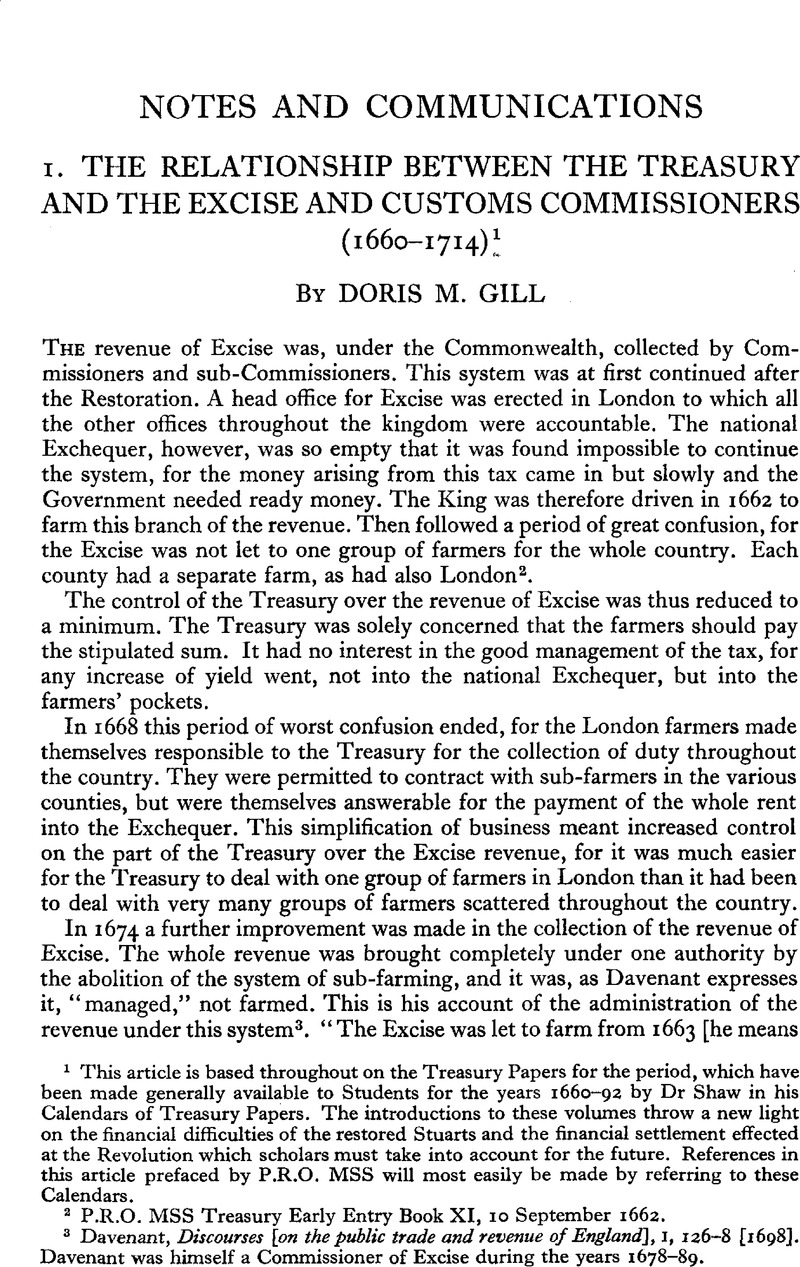Published online by Cambridge University Press: 20 December 2011

2 P.R.O. MSS Treasury Early Entry Book XI, 10 September 1662.
3 Davenant, Discourses [on the public trade and revenue of England], I, 126–8 [1698]. Davenant was himself a Commissioner of Excise during the years 1678–89.
4 Brit. Mus. Add. MSS 28075, King's Warrant Book IV, 9 November 1674.
5 P.R.O. MSS, Warrants not relating to money, vol. VI, 7 January 1676.
6 P.R.O. MSS, Warrants not relating to money, vol. V, 19 August 1674. P.R.O. MSS, Warrants not relating to money, vol. VII, 9 August 1677.
7 Davenant, Discourses, 1, 75–8 [1698].
8 Atton and Holland, The King's Customs, p. 104 [1908].
9 Dr Shaw, Introduction to the Calendar of Treasury Books, II, 1667–8, pp. xiii and xiv.
10 Sir Robert Howard, An account of the state of His Majesty's revenue as left by the Earl of Danby, 1679, from pamphlets collected and republished entitled The Impeachment of the Earl of Danby [1710].
11 P.R.O. MSS, Treasury Out-Letters General VII, 24 January 1684.
12 The evidence of the advisory activities of the Commissioners of the Customs and of the Excise is to be found, not in a few isolated documents, but scattered broadcast through the Treasury documents, in the Outletters Books (in which record is kept of the letters referring matters to the Commissioners) and among the papers sent in to the Treasury (calendared by Redington) in which are to be found their reports on matters referred to them.